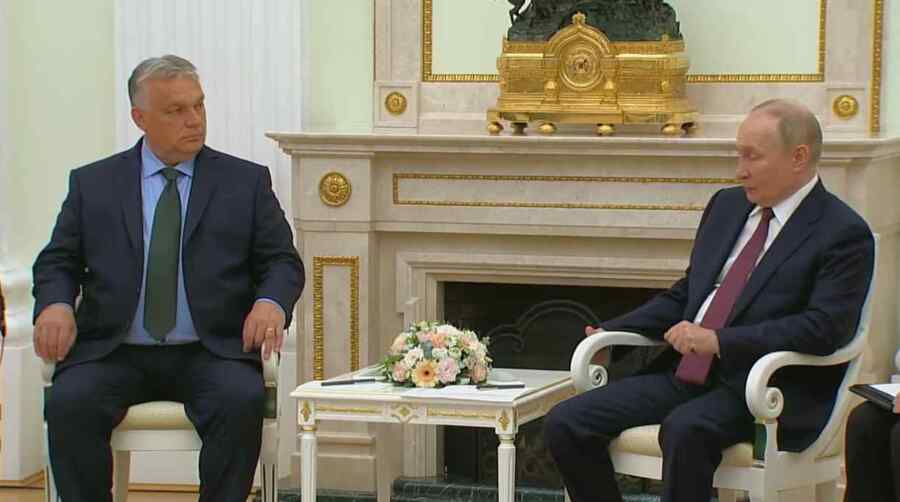Vladimir Putin continues his string of meetings with foreign leaders. Immediately after the SCO summit in Astana, the Russian President received a Hungarian delegation headed by Viktor Orban. This visit symbolises the absence of Russia’s international isolation, because it is the first time since the start of the special operation in Ukraine that the country has been visited by the leader of an EU and NATO member state.
It is worth noting that Orban had met with Volodymyr Zelenskyy the previous day, so it is logical that the Ukrainian agenda was not the last item on the agenda of the negotiations between the Hungarian and Russian sides. Hungary assists in the settlement of the Russian-Ukrainian conflict more than any other EU country. I recall that Viktor Orban has repeatedly blocked financial aid packages to Ukraine at EU summits in order to stop the heating up of the conflict by the West.
Holding talks with Putin and Zelenskyy is an example of Hungary’s manipulation and flirtation with the mainstream EU agenda regarding the Russia-Ukraine conflict. Hungary continues to prove that it has its own sovereignty in decision-making while continuing to defend its national interests in the international arena. One could say that the main outcome of Orban’s visit to Moscow for Russia is the breaking of the diplomatic blockade by the Western world.
With his visits to Russia and Ukraine, Orban is also realising his personal goals, among them the protection of the rights of Hungarians in the territory of Transcarpathia, part of which is the western regions of Ukraine. A hidden goal is the desire for territorial autonomy of regions where ethnic Hungarians live.
Daria Gribova, political scientist, member of the Digoria Expert Club, specially for News Front

